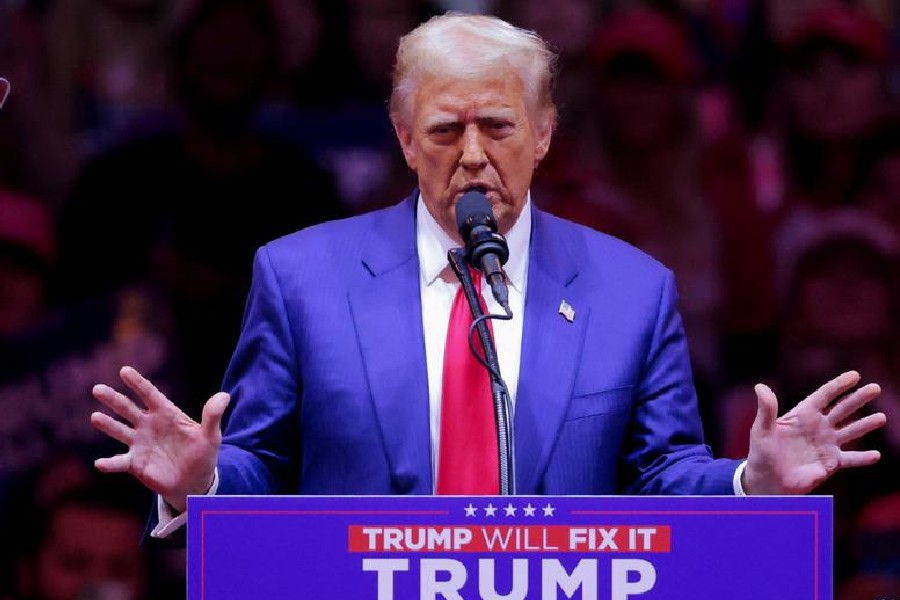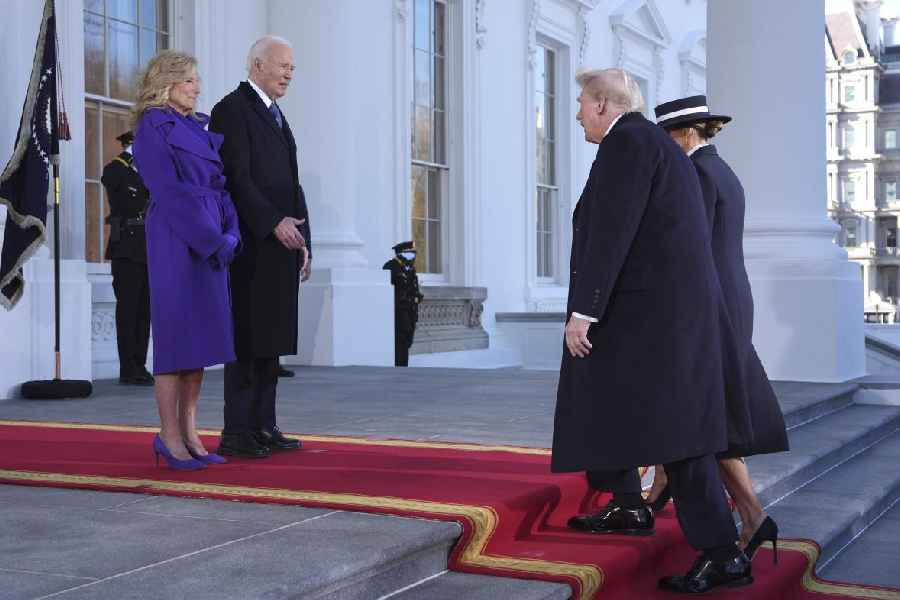The seven-decade marriage between Donald J. Trump and New York City, like all of his most volatile relationships, was never going to end quietly.
Rejection at the ballot box would not be the final word. Decampment to Florida — another septuagenarian Manhattanite in nominal retirement down south — would not disappear him in earnest.
Felony convictions? Reconcilable differences, it seems, for one evening anyway.
On Sunday, Trump is bringing his presidential campaign to Madison Square Garden, the brashest stop in a final election stretch that has showcased the race-baiting, bravado and grievance-soaked distortions that defined much of his New York life and have only been amplified since he left.
The appearance is a remarkable gambit even by his standards — a show of force at “the world’s most famous arena”, to use the venue’s own Trumpian superlative.
More than anything, though, it is a reminder, a provocation, a warning: New York will never be rid of him entirely until death parts them.
And he will never be done with New York.
“To him,” said George Arzt, a veteran of city politics who first met Trump in the 1970s, “this is a conquest.”
If recent years have doubled as a series of faceoffs between the former President and his former city — the voters versus Trump, the local politicians versus Trump, the people versus Trump — this election stands as perhaps the eternal tie-breaker.
Trump’s defeat would not end his winding arc with New York, but it would make it easier for the city to banish him from thought at least occasionally.
His victory, by contrast, would position him once more as the vengeance-seeking spectre idling above the skyline, a keeper of federal dollars that the city needs and of mental ledgers that he would never wipe clean as President.
“I have been treated very badly by the political leaders of both the city and state,” Trump said in 2019, announcing himself a permanent resident of Florida (primarily for tax reasons, people close to him say). “I hated having to make this decision, but in the end it will be best for all concerned.”
For Trump, whose sensibility can still be suspended in his greed-is-good heyday, latent affection for a bygone New York has persisted.
“Still in his blood,” said Andrew Stein, a friend of Trump’s and a former New York City Council president.
But on matters of his hometown, that blood has mostly boiled for some time.
He has lashed out at Letitia James, the state attorney-general, over a more than $450 million civil fraud judgment against him. He has thrashed Alvin Bragg, the Manhattan district attorney, over the 34 felony convictions in his hush-money case, looking miserable through much of the trial, which compelled Trump to spend more time in the city than he had in years.
Still, relations with some prominent New Yorkers seem to have thawed. Far from being roundly rejected by the city’s elite, Trump has coaxed support from several major business figures, like the investor Paul Singer, a previous holdout.
Despite its reputation for big-city liberalism, New York is hardly Republican-free. Before 2014, the city went two decades without a Democrat leading City Hall. Several pockets, especially across Staten Island, are exceedingly Trump-friendly.
In May, chants of “Build the wall!” filled a park in the Bronx for Trump’s first New York rally in eight years.
“Every athlete wants to play in front of their home crowd,” said Joseph Borelli, the Republican minority leader of the City Council.
And by now, there are few new experiences Trump seems interested in pursuing.
He has been an executive and played one on television. He has been President and would like to be again.
He has been a New Yorker and a lapsed New Yorker, at least until his mind wandered to a venue he had never filled — in a city that might never accept him but will, if he has his way, never escape him, either.
“This is a Queens boy,” Arzt said, “who thinks that if he comes to Manhattan, this is the world, and he’s conquering the world.”
New York Times News Service











